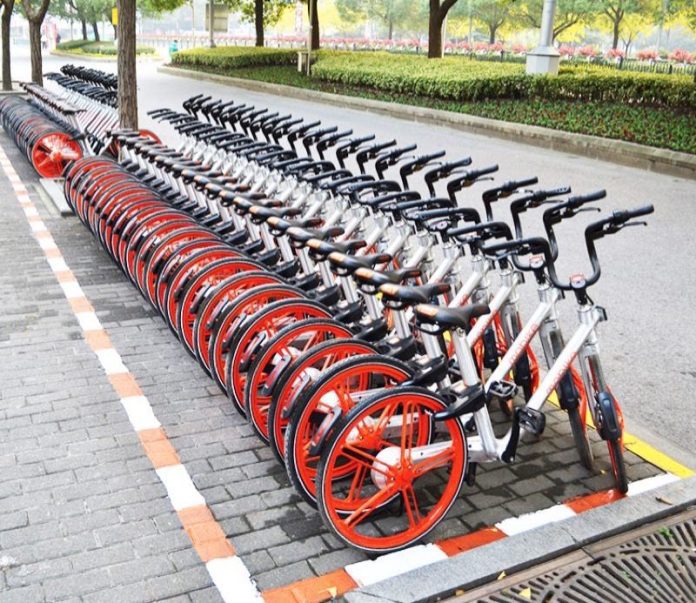The Chinese smart bike sharing firm is using Vodafone’s IoT platform to support its foreign operations
Chinese smart bike sharing service Mobike is using IoT connectivity from U.K-based telecoms group Vodafone in order to improve its operation efficiency.
Since launching in Shanghai, China in April 2016, Mobike has expanded into over 160 cities in China and abroad. It has over 7 million bikes in use, and started its first international operation in Singapore, in March 2017. In June 2017 it launched in Manchester, UK, its first city outside Asia, followed by cities in Italy and Japan.
Mobike’s goal is not just to provide transport options but to provide city authorities with the data insights to make better informed transport investments. According to Mobike, usage data can improve plans for cycle lanes, bike parking, and facilities at transport hubs.
The Mobike approach to bike sharing is very different to schemes already present in many cities. Rather than managing a network of ‘docked’ bikes, held at secure locations around the city, Mobike allows users to locate and reserve a bike via a dedicated mobile app. The bikes are all equipped with GPS, and a SIM connected to a central platform.
The technology embedded in the lock makes highly efficient operations possible, with the highest utilisation rate. Users leave a deposit and can hire a bike for little money, returning it to any regular bike parking area at their destination.
“Our costs are cheaper because we don’t have as much infrastructure to support,” said Florian Bohnert, head of international operations at Mobike. “What we need is a critical mass of bikes in any given city, to make it easy for users to find a bike whenever they need one.”
Mobile said that reliable connectivity is key for the firm’s business. The Chinese company has a global agreement with Vodafone to use the Vodafone Managed IoT Connectivity Platform in every market outside of China. “We use the Vodafone global IoT platform and one IoT SIM per bike that fits our global expansion. We use the platform in Singapore, in Manchester, and we’ll continue to partner with Vodafone to help our future expansion,” said Bohnert. “With a Vodafone IoT SIM embedded in the smart lock of our bikes, we can ship to anywhere in the world.”
Mobike users download the app and use it to find and unlock a bike in a convenient location, and to track their usage statistics. The IoT hardware and software in the smart lock on the bike enables the collection of a vast library of transport data, which can be split by day of the week, distance, and more. In the future, this data could be merged with public transport data to generate a total picture of a city’s transport infrastructure, Mobike said. “We are willing to share data insights with the relevant local transport authorities to help make better transport decisions,” said Bohnert.
Mobike already uses real-time data to influence user behaviour. It rewards users with extra credits if they can park bikes in high-demand areas. This location-based technology and machine learning has increased allocation and distribution efficiency, the company said.

